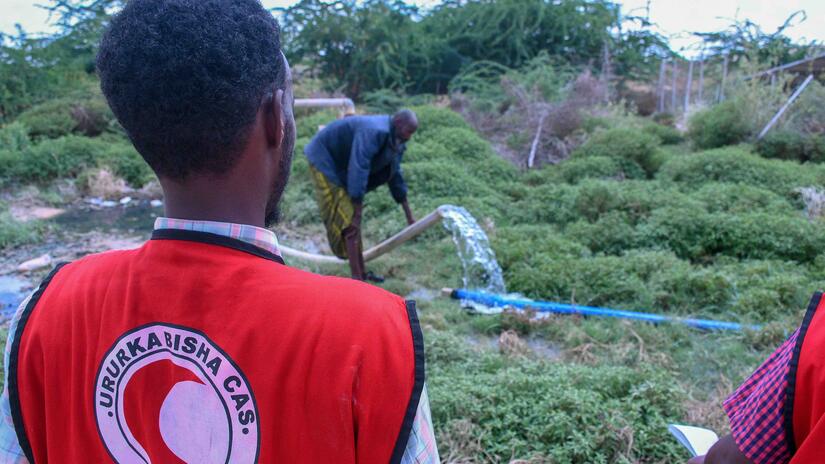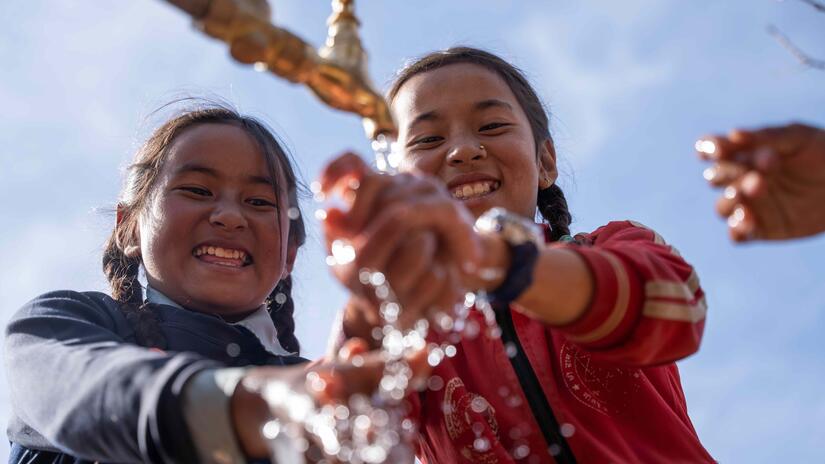World Water Day
Access to safe water is a basic human right and an essential element in maintaining our health and well-being. Still, hundreds of millions of people around the world lack access to safe water. On World Water Day, we join the call of those around the world working to ensure that all people have easy access to this essential ingredient to a safe, healthy and peaceful life.
Safe water key to healthy and stable communities

Water gushes from a pipe connected to a borehole recently re-furbished by the people of Cuun village, the Somali Red Crescent and the IFRC.
Photo: IFRC/Timothy Maina
Calamities such as earthquakes, floods, drought, conflict — even extreme cold weather — often put water out of reach for people, and the livestock and crops they rely on to survive.
Meanwhile, lack of access to clean water and proper sanitation too often results in the spread of infectious diseases such as cholera, diarrhea and E. Coli, among many others.
Water scarcity and insecurity, meanwhile, is increasing worldwide, and so is the recognition of its role as a potential multiplier of instability and conflict.
These are some of the reasons the theme of World Water Day 2024 is ‘Water for Peace.’ Access to wafe water is a game changer for community health, resilience and prosperity. It opens the door to healthier people, more secure food sources and more stable communities. We invite you to join us in working to ensure all people around the world have access to safe water and a healthy, peaceful future.
What does the IFRC do to ensure access to water?

Two young children smile and laugh as they wash their hands in a newly built water tap in their village in rural Nepal.
Photo: Merit Maharjan/IFRC
The IFRC works to ensure that people around the world have equitable, sustainable and affordable access to water, sanitation and hygiene services and knowledge (WASH).
We do so by supporting our 191 National Societies to deliver effective emergency, recovery and long-term WASH programmes.
Collectively, we reach over 100 million people with quality water, sanitation and hygiene activities every year.
